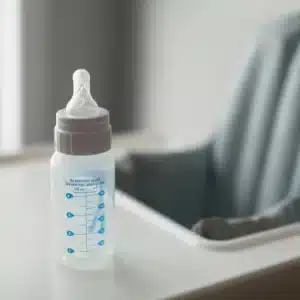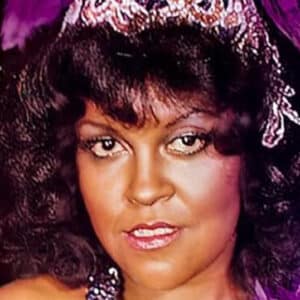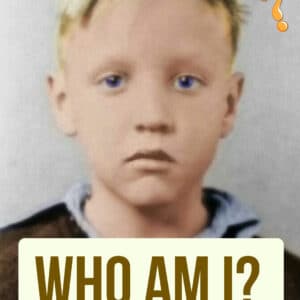Two years after my son died, the only part of him I could still hold lived inside a cedar chest at the foot of our bed. His dinosaur hoodie with the felt spikes. His tiny sneakers—laces always untied. A crayon drawing where he gave himself wings and made me a superhero. The silver baby bracelet that once wrapped my grandmother’s wrist.
When grief pressed down so hard I forgot how to breathe, I’d open that chest and bury my face in his hoodie. And if I tried hard enough, I swore I could still smell bubblegum shampoo.
Ethan, my husband, never tried to take that from me. But Lorraine—his mother—always believed she knew what was best. After Caleb’s accident, she offered sharp comfort: “Move on. God needed another angel.” And: “Keeping his things is unhealthy.” I bit my tongue, but her words stuck like glass in my chest.
The day it happened, I knew before I saw it.
The house felt hollow—not the way grief hollows a place, but the way theft does.
I went straight to our bedroom.
The chest was gone.
“Did you move Caleb’s chest?” I called, already cold.
“Why would I move it?” Ethan called back from the office.
I tore through closets like something wild. Then I heard the trash truck. I ran to the garage. On top of our bin sat a black bag tied in a neat bow. My hands shook as I untied it.
Coffee grounds. Banana peels. And there—tangled in it all—Caleb’s hoodie. His sneakers. His superhero drawing. Crumpled. Trash.
I screamed until there was nothing left in me. Ethan sprinted out just as Lorraine stepped through the back door, purse on her arm like she’d just come from lunch.
“Where is the chest?” I rasped.
“I did what you were too weak to do,” she said, calm and casual. “It’s unhealthy, living in the past. He’s gone, Rebecca. You need to let go.”
“You threw him away?”
“They’re just things. Garbage. You’ll thank me later.”
Something broke in me that made no sound. Ethan threw her out. I curled on the concrete with Caleb’s hoodie against my chest, and for the first time since we lost him, I didn’t scream. Silence had become my sharpest truth.
That night, I decided: I would never beg her for compassion. But I would make sure she regretted what she did. Not out of vengeance—but for justice, for Caleb. Just once. Clean. In the light.
I ordered a nanny cam and placed it in the guest room where she always stayed.
While salvaging what I could from the trash, I realized something else was gone: my grandmother’s silver baby bracelet. At first, I thought it went out with the garbage truck.
Three weeks later at a family barbecue, Lorraine lifted her wrist to show off a “new” silver bracelet. Lorraine never wore silver.
“Where did you get it?” I asked.
“A friend,” she said smoothly. “It was a gift.”
I made calls. A pawn shop owner named Frank remembered her. “She sold some silver about a month ago. Had it melted. There’s a receipt.”
It described Caleb’s bracelet. Forty-three dollars.
I waited.
She kept needling me at dinners: If you cried less, maybe Ethan would want another baby. Some women just aren’t built for loss. Every sentence was a stitch in the flag I would someday raise.
Then I invited everyone over. Cooked Lorraine’s favorites. Poured good wine.
Halfway through dinner, I stood up.
“I want to show you something.”
I clicked the remote.
On the TV, Lorraine—clear as day—opened my dresser, lifted the chest, carried it down the hall. Gasps. Forks froze mid-air. My father-in-law went pale.
“That’s out of context,” Lorraine stammered. “She asked me to help clean—”
I slid a paper next to her wine glass. The pawn receipt. Her signature. Caleb’s bracelet. Forty-three dollars.
Ethan stood up. “Get out,” he said, voice trembling. “Mom, get out of our house.”
Lily whispered, “Oh my God, Mom… how could you?”
But I wasn’t done.
I set a small recorder beside the centerpiece. “You can throw away clothes,” I said. “You can pawn jewelry. But you will not erase my son.”
I pressed play.
Caleb’s voice filled the room: “Goodnight, Mommy. I love you to the moon and back.”
Lorraine’s hand flew to her mouth. Ethan broke. Mike cried. I stood, tears burning down my cheeks, holding her gaze.
“You tried to call it mercy,” I told her. “But here he is. He lives in this house, in the people who love him. You don’t get to decide when his memory ends.”
She left without a word.
It’s been two days. Ethan hasn’t called her. Lily texted to say she’s sorry. Mike said he’s ashamed.
As for me, for the first time since I found that black bag, I feel like Caleb is safe again. Her poison can’t touch him now.
Some nights I still play that recording. I press my hand to the speaker—it feels like cradling his face.
Grief has its own weather. No one gets to tell you when your season ends.
Lorraine believed she could tidy away what tied me to my child. But the truth is: what she threw away didn’t die. It rooted deeper.
She’ll carry that look—on her children’s faces when they finally saw her—for the rest of her life.
And I?
I’ll carry Caleb. In the hoodie soft as breath. In the drawing inside my closet. In his goodnight whispered through time.
Because that’s what mothers do. Even when the fight is quiet. Even when it’s just memory we’re guarding.
If you’re holding something that keeps love close—hold it. Don’t let anyone shame your grief.
Truth doesn’t have to shout. It only has to stand.
And love?
Love always stands.





